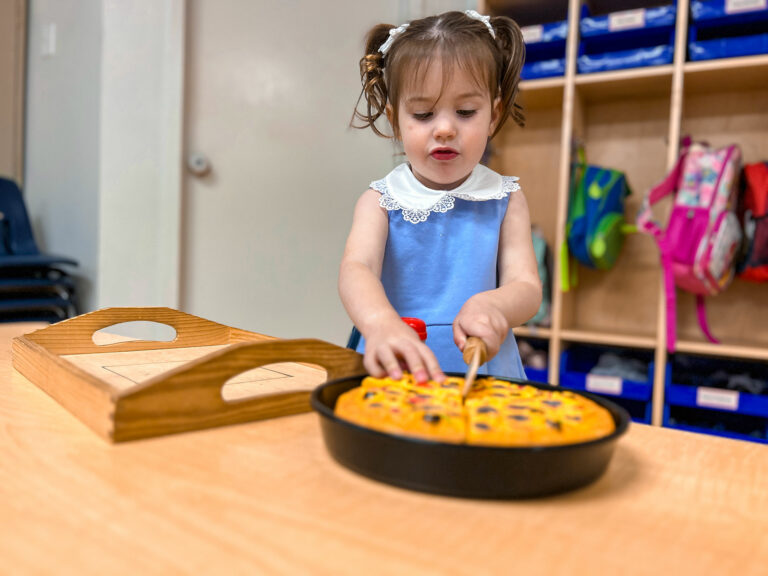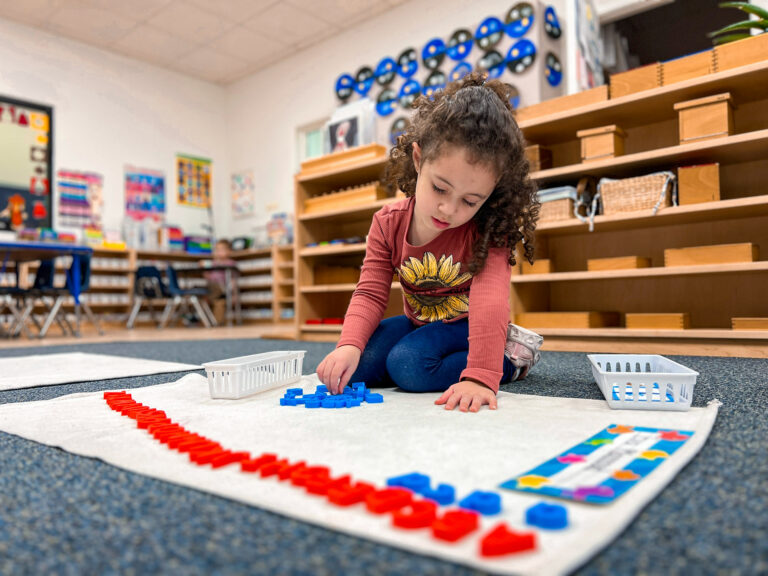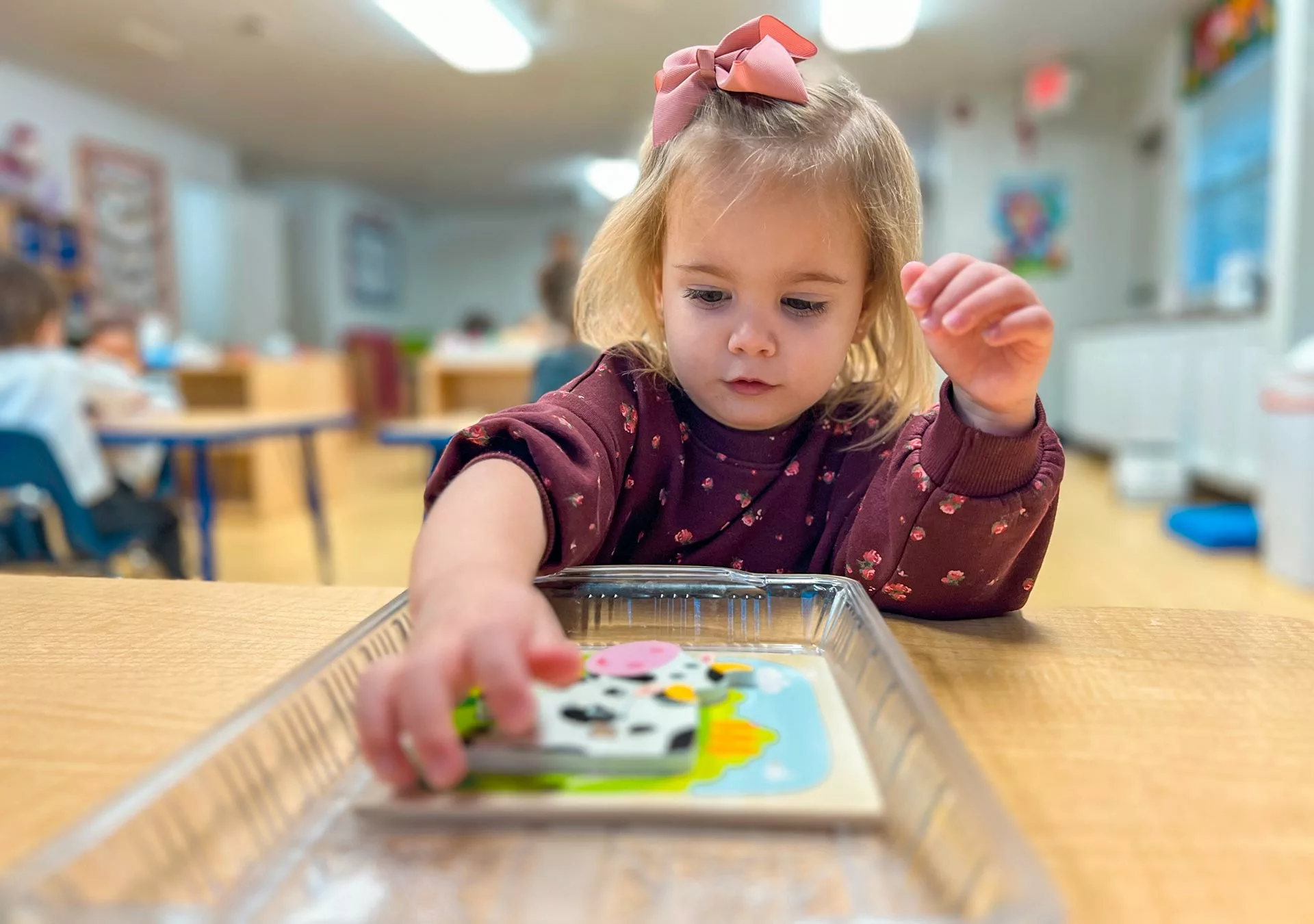The Montessori curriculum is a renowned educational approach that emphasizes the development of practical life skills, independence, and language in young children. Dr. Maria Montessori founded this method and has gained international recognition for its unique approach to early childhood education. At Lakewood Montessori, we dedicate our lives to nurturing the essential life skills that form the foundation of a well-rounded education. Our approach goes beyond traditional learning methods, focusing on holistic development. In this blog post, we will explore how the Montessori curriculum addresses the essential aspects of a child's development while optimizing their overall learning experience.
Practical Life Skills in the Montessori Curriculum
The foundation of the Montessori curriculum lies in the development of practical life skills. In the early years, children are like sponges, absorbing knowledge and skills rapidly. The Montessori approach recognizes this and provides a structured environment to help children develop a wide range of practical skills. There are essentially four categories of practical life skills that highlight a unique focus on key concepts that are all part of your child’s journey toward independence. Together, they help a child learn self-awareness and become conscious of their language, behavior, actions, and impact on others. The four categories are:
- Grace and Courtesy
- Control of Movement
- Care of Self
- Care of Environment
Let’s explore how this looks in a typical classroom setting.
Grace and Courtesy – Fostering Harmonious Relationships
The Montessori philosophy greatly encourages "getting along well with others." Grace and Courtesy isn't just about polite manners; it's about cultivating a deep understanding of social dynamics, empathy, and effective communication. We teach our students to embrace diversity, respect others' viewpoints, and resolve conflicts peacefully. Our mixed-aged classrooms are entirely supportive of this endeavor. These skills are essential not only for their academic journey but also for their lifelong interpersonal relationships.
Control of Movement – Mastering Physical Presence

"Being aware of your body in space" is a concept we integrate into our daily curriculum. Our hands-on, experiential activities help children develop fine and gross motor skills and body awareness. This mastery of movement enhances their ability to engage in activities with precision and control. Our students learn to express themselves effectively through physical gestures, whether pouring, tying shoelaces, or engaging in sports and artistic pursuits.
Care of Self – Nurturing Well-being
The curriculum strongly emphasizes "learning to care for your own needs." We encourage children to take ownership of their physical, emotional, and mental well-being. They learn about nutrition, self-care routines, and emotional self-regulation. By nurturing these skills, we empower our students to become resilient, responsible individuals well-prepared to navigate life's challenges.
Care of Environment – Environmental Responsibility and Stewardship
"Caring for your environment" extends beyond simply cleaning up after oneself. At our Montessori school, we instill a sense of environmental responsibility and global stewardship. Children learn to reduce waste, conserve resources, and understand the interconnectedness of all living beings. We aim to inspire future generations of environmentally conscious citizens by fostering a deep respect for the environment.
The Montessori approach teaches these four categories of practical life skills in collaboration. Instead, they are seamlessly woven into the fabric of our curriculum, integrated into daily activities, promoting holistic growth and development. Through this unique educational philosophy, we aim to nurture well-rounded individuals who excel academically and thrive as empathetic, responsible, and environmentally conscious members of society.

Language Development in the Montessori Curriculum
Language is another critical area of focus in the Montessori curriculum. Effective communication skills are essential for academic success and lifelong learning. Montessori classrooms incorporate spoken and written language into the environment to enrich this early learning further.
In our toddler and primary classrooms, we expose children to songs and poems so they may hear and experience language in a fun, playful, appealing way.
Here's how the Montessori approach enhances language development:
Language-Rich Environment
The design of Montessori classrooms lends to language-rich environments. Exposure to spoken and written language happens throughout the day. This language immersion helps them develop strong vocabulary and listening skills. Children are more likely to embrace language and its importance in this nurturing atmosphere.
Phonics and Reading
The Montessori curriculum emphasizes phonics and the development of reading skills. The introduction to phonetic sounds and letters begins at an early age. They use materials like the movable alphabet to form words, which aids in building a solid foundation for reading. The Montessori method allows children to progress at their own pace, ensuring a deep understanding of language concepts. It’s why we can say our preschoolers are reading!''
In Conclusion
The Montessori curriculum is a comprehensive, time-tested educational approach focusing on young children's practical life skills, independence, and language development. By providing an environment where children can actively explore and engage with their surroundings, the Montessori method fosters autonomy and encourages the development of essential language skills. We invite you to take the next step in providing your child with a remarkable educational journey. Schedule a tour of our Montessori school today and witness firsthand the transformative impact this curriculum can have on your child's life. Give your child the gift of independence, essential life skills, and a strong foundation in language development. Together, let's pave the way for a brighter future filled with endless opportunities for your little one. Don't wait – schedule your tour now and embark on this exciting educational adventure!

